Better tech. Renewed hope.
For Jessica Jameson, Jackie Weisbein, and Shachi Patel — among the first doctors to implant our Proclaim™ XR recharge-free SCS system for people living with chronic pain — those are the common themes they see first-hand from modern pain management.
Now FDA-approved, the Proclaim™ XR recharge-free system couples BurstDR™ stimulation therapy with a low-dose protocol to mimic the body's natural nerve signals. Proclaim XR SCS system can last up to 10 years1 on a single charge, giving physicians effective treatment options beyond medications and patients reliable relief outside of their medicine cabinet.
For any doctor who treats people in pain, it's an exciting time. For these women and their colleagues, it's especially so. Advancements are providing more opportunities to make a difference in a field still lacking female representation.
Here's what each had to say about what's ahead for pain medicine:
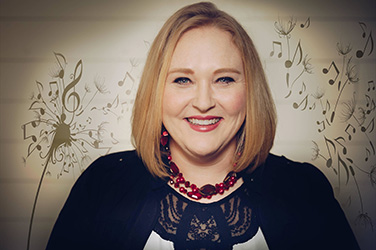 "Every single interaction I have with my patients is a chance to connect, to be present and to leave a mark, however small, on the life of another human being." — Dr. Jessica Jameson, MD, FASA
"Every single interaction I have with my patients is a chance to connect, to be present and to leave a mark, however small, on the life of another human being." — Dr. Jessica Jameson, MD, FASA
Having served as both a flight surgeon for the U.S. Air Force and an established physician in private practice, Dr. Jameson has had a diverse professional experience. But no matter where life has taken her — on the ground or in the air — her calling has held steady. She aims to help.
"Medicine is difficult and challenging, and the outside pressures are mounting," said Dr. Jameson, who practices as an interventional pain physician in northern Idaho. "When I step back for a moment and realize that I am meeting people in one of their most vulnerable times and having the chance to listen, connect and have an impact, I feel blessed."
During her career, she's watched the pain management field evolve, with each advancement bringing new benefits to her patients.
"The era of [prescription painkiller] prescribing is ending and we're now moving into a time of novel and advancing options to treat pain," she said. "We're seeing customized, patient-specific options."
Those advancements have ushered in new opportunities for drug-free pain relief. Proclaim XR SCS system expands those opportunities further.
"Proclaim XR [SCS system] has allowed patients to have more freedom and options in choice," Dr. Jameson said. "The neural dosing changes and adjustments that we are seeing industry-wide has allowed for more tailored therapy and less energy usage, which has changed the way we program as well as the pain relief patients can expect."
Though these advancements have impacted Dr. Jameson's patients, they've also influenced her personally and professionally. She's learned to surround herself with a good support network and cultivate meaningful relationships.
Most of all, she's learned to ask. Good opportunities don't often knock twice.
"Asking for what you want in a gracious, thoughtful way is extremely important," said Dr. Jameson, who also serves on the board of the North American Neuromodulation Society (NANS) Women in Neuromodulation and founded the Society for Women Innovators in Pain Management. "And don't forget not to take yourself or this life too seriously."
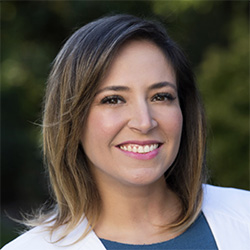 "Having the availability to give patients options to improve their quality of life is imperative, because many of them feel hopeless." — Jackie Weisbein, DO
"Having the availability to give patients options to improve their quality of life is imperative, because many of them feel hopeless." — Jackie Weisbein, DO
Ask Dr. Weisbein what she loves most about her career and you'll likely hear about someone she saw that very day. We caught her on a day that she had just given a patient some uplifting news.
"He feared that I was going to tell him he just had to live with his pain," she said. "But after I gave him the Proclaim XR SCS system booklet and explained the device to him, he became a little choked up and said that he was at least now leaving with hope."
Examples like that aren't uncommon in her Napa, Calif., practice, where Dr. Weisbein works as an interventional pain management physician. Her patients are in the midst of their most painful days. She values helping them find new options that work with their lifestyle.
"Pain medicine is a hard field because we see patients at their worst," she said. "With the Proclaim XR [SCS system], I'm able to help them achieve improvement in their pain control as well as improve their sense of suffering."
"What I love about it is that the BurstDR stimulation waveform is unique; it mimics the body's natural firing impulses," Dr. Weisbein added. That functionality (and the long-lasting battery) help her patients live life without needing to stop and recharge the device. "They can get outside and enjoy Northern California's beautiful nature."
Just recently, Dr. Weisbein learned that her first Proclaim XR SCS system patient plans to run a marathon. The marathoner's mother — who is also a patient of Dr. Weisbein's — plans to walk a 5K.
"To hear my patients are doing well and able to participate in activities they enjoy, it brings me such great pleasure," she said.
It's her "why:" Why she's a doctor, why she treats pain and why she works with Proclaim XR SCS system. She encourages all female clinicians to find their specific purpose, too.
"If you continue to move forward with a remembrance of the motivation of why you went into medicine — to help people — you'll help improve the quality of life of so many people," said Dr. Weisbein, a previous chairwoman for NANS Women in Neuromodulation. "And that is the most rewarding thing one could ask for."
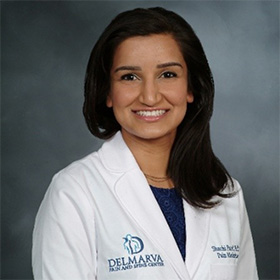 "It's always rewarding to help patients understand that they have more options for pain treatments than just opioids." — Shachi Patel, MD
"It's always rewarding to help patients understand that they have more options for pain treatments than just opioids." — Shachi Patel, MD
Dr. Patel got her start in pain management as a tribute to her grandmother, who suffered from severe rheumatoid arthritis and lived with mobility-limiting pain.
"It was heartbreaking to see her suffer and even more heartbreaking to see the only treatments available to her were strong DMARD agents and anti-inflammatories," she said. "This strongly motivated me to be more objective on patient-centric goals and help people live more functional, pain-free lives."
Now, as an interventional pain management physician in Newark, Del., Dr. Patel provides SCS for patients who develop chronic pain after failed back surgery. Through Proclaim XR SCS system, she's able to give them the safe, effective alternatives her late grandmother never had access to.
"Spinal cord stimulation has provided an alternative to chronic use of high-dose narcotics that cause negative medication-related side effects with the potential risk of addiction," she said, adding that the possibility of a 10-year battery helps her patients experience life without missing moments to recharge. "It's both eye-opening and motivational to be part of a space that is innovative and life-changing for my patients."
Dr. Patel noted that she hopes other female physicians will join her. Too few of them choose pain medicine as a specialty. It can be quite a rewarding path.
"Despite the high number of women entering medicine, the specialty is marginally represented by women," said Dr. Patel. "I would love to see that change. I find the mix of neuroanatomy, interventions and clinic interventions to be well-balanced for a fulfilling medical career."
1Up to 10 years of battery longevity at the lowest dose setting: 0.6mA, 500 Ohms, duty cycle 30s on/360s off. NOTE: In neurostimulation therapy, 'dose' refers to the delivery of a quantity of energy to tissue. Safety comparisons and specific dose-response curves for each dosage have not been clinically established. Refer to the IFU for additional information. Hassle-free means recharge-free.
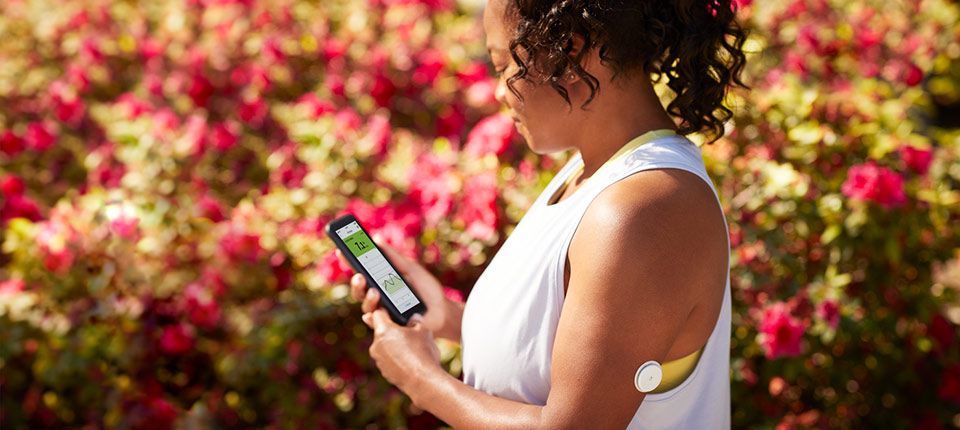

 "Every single interaction I have with my patients is a chance to connect, to be present and to leave a mark, however small, on the life of another human being." — Dr. Jessica Jameson, MD, FASA
"Every single interaction I have with my patients is a chance to connect, to be present and to leave a mark, however small, on the life of another human being." — Dr. Jessica Jameson, MD, FASA "Having the availability to give patients options to improve their quality of life is imperative, because many of them feel hopeless." — Jackie Weisbein, DO
"Having the availability to give patients options to improve their quality of life is imperative, because many of them feel hopeless." — Jackie Weisbein, DO "It's always rewarding to help patients understand that they have more options for pain treatments than just opioids." — Shachi Patel, MD
"It's always rewarding to help patients understand that they have more options for pain treatments than just opioids." — Shachi Patel, MD
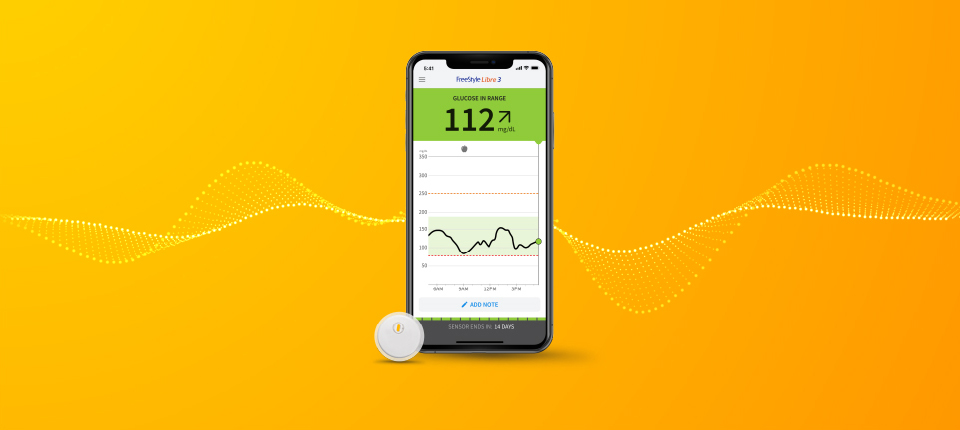

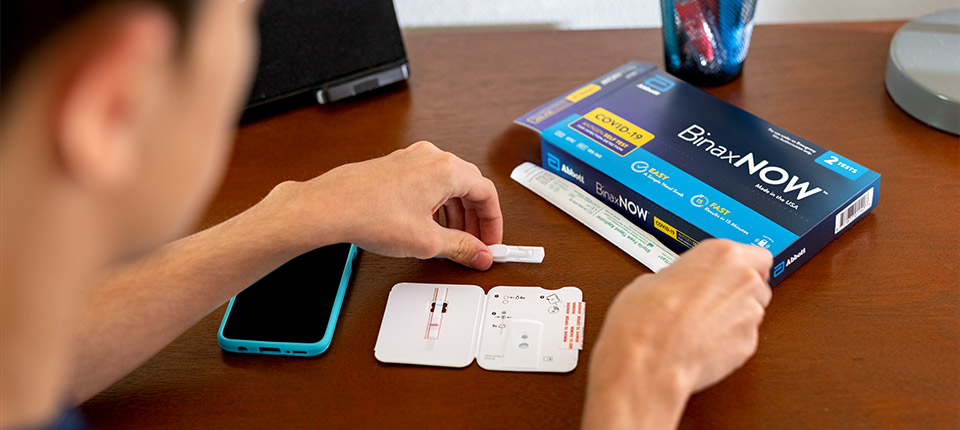
FOLLOW ABBOTT